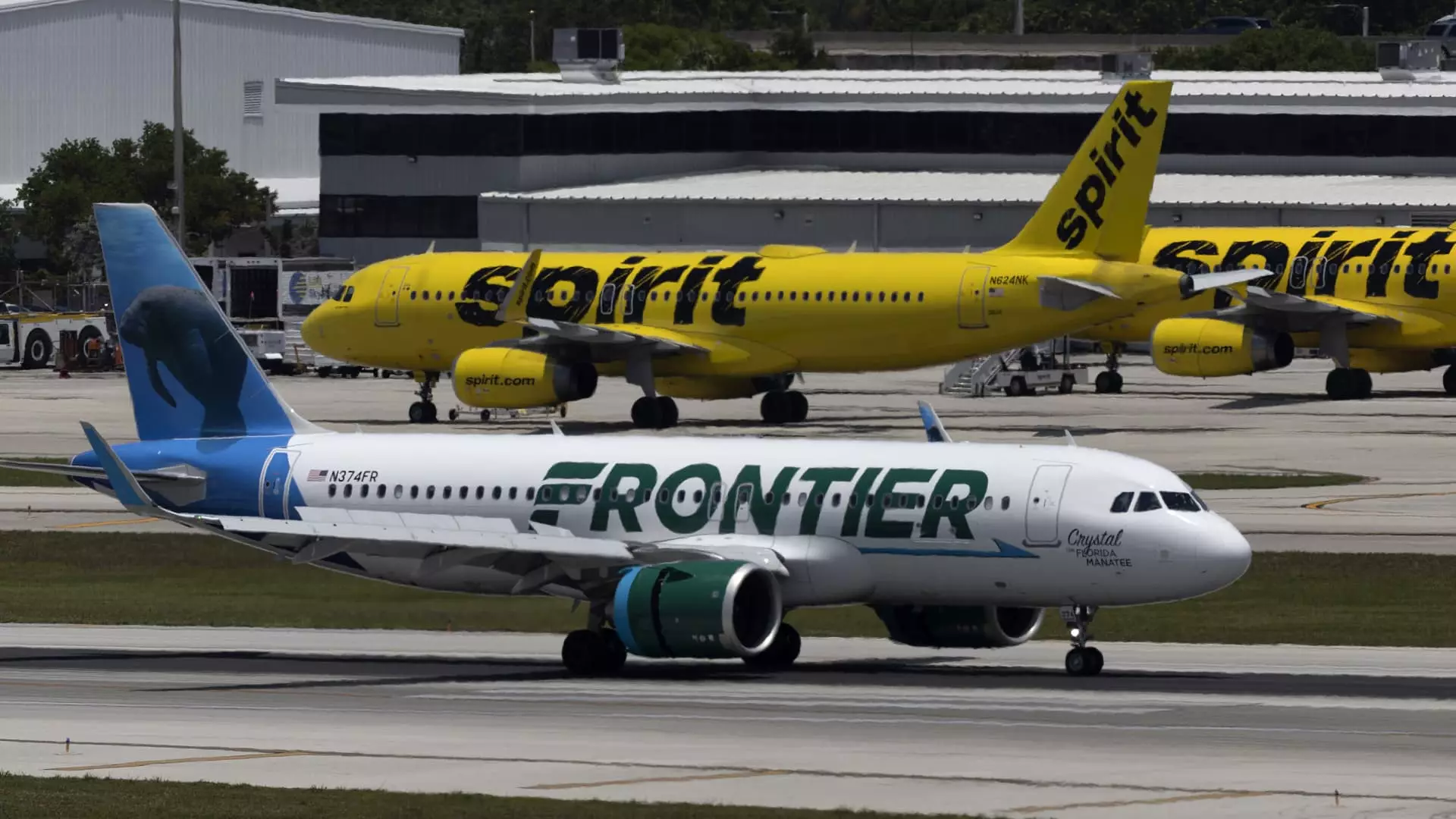In a significant development within the airline industry, Frontier Airlines has renewed its proposal to merge with Spirit Airlines, which is currently navigating the complications of bankruptcy. This merger scenario is not new; the two airlines initially announced an agreement back in 2022. However, that plan was abruptly interrupted by an acquisition bid from JetBlue Airways. Despite JetBlue’s intentions, a federal judge blocked this acquisition last year, eventually leading Spirit to file for Chapter 11 bankruptcy protections in November. The current situation raises questions about the viability and strategic benefits of such a merging at a time when the industry is grappling with significant disruptions.
Frontier Airlines has expressed confidence in its proposal, claiming that it is more beneficial than Spirit’s existing plan to exit bankruptcy. In their communications with Spirit’s leadership, Frontier executives articulated concerns regarding Spirit’s standalone business trajectory which they believe would result in an unsustainable and heavily leveraged operation. This stance is summarized in a direct correspondence from Frontier’s Chairman Bill Franke and CEO Barry Biffle to Spirit’s leaders, where they emphasized the pressing need to act quickly due to the precarious situation Spirit finds itself in.
Countering this, Spirit’s leadership has dismissed Frontier’s proposal as “inadequate and unactionable.” This stark rejection indicates a deep-seated skepticism within Spirit regarding the strategic alignment of the two carriers. Their stance underscores the operational hurdles Spirit faces, which they assert necessitates an independent restructuring effort rather than an acquisition.
Spirit’s current financial turmoil is exacerbated by a series of challenges, including substantial layoffs—200 jobs were recently cut—and a major recall of Pratt & Whitney engines that grounded numerous aircraft. Such operational complexities not only jeopardize Spirit’s immediate financial health but also raise broader questions about the competitive landscape of budget airlines in a post-pandemic world. Travelers are now increasingly favoring airlines that offer more comfort and amenities, a shift that compels lower-cost carriers to consider changing their foundational business models.

